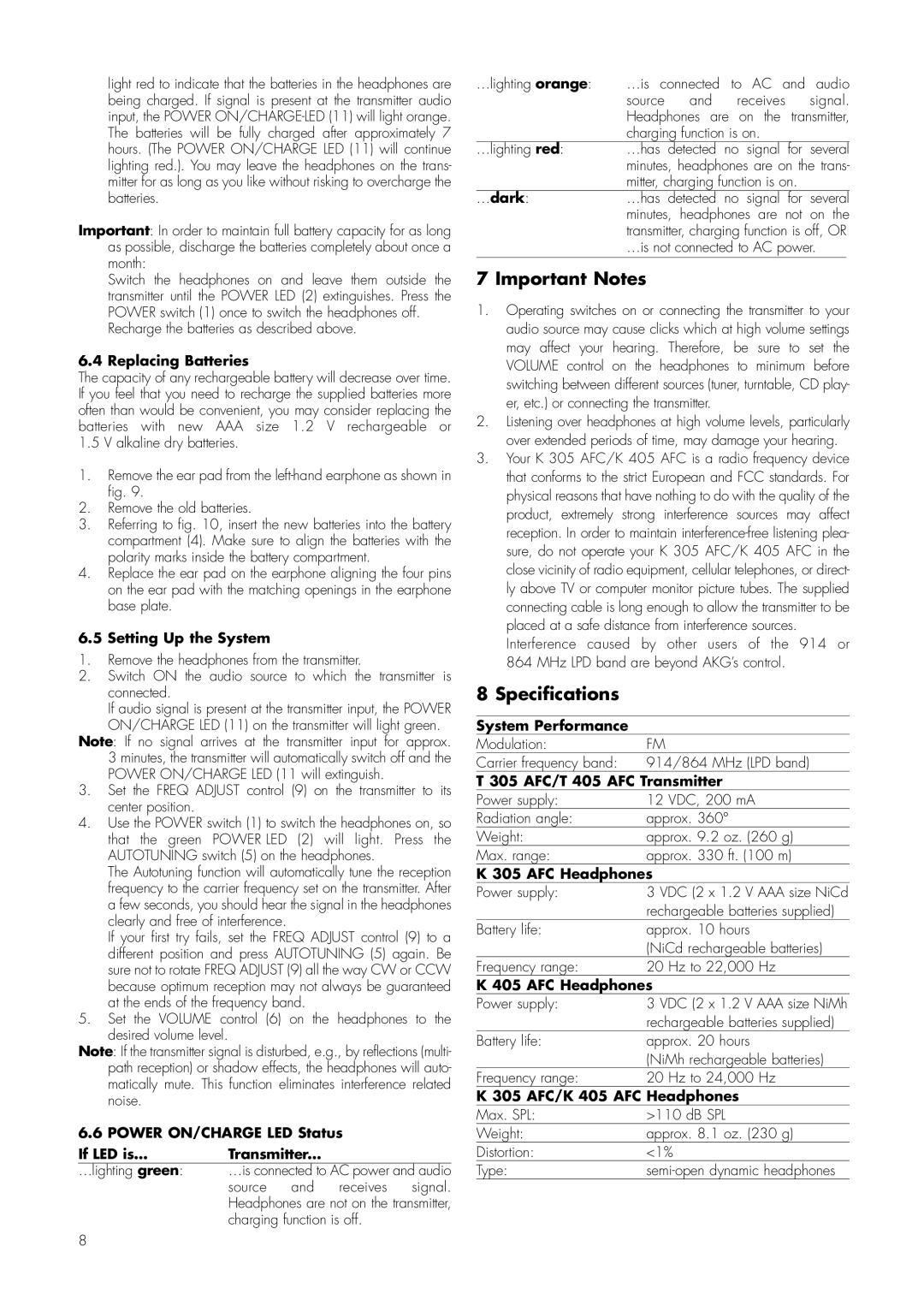K 405 AFC, K 305 AFC specifications
AKG Acoustics has long been known for producing high-quality audio equipment, and their headphones are no exception. Among their impressive lineup, the K 305 AFC and K 405 AFC stand out as exceptional models that cater to both audiophiles and casual listeners alike. These headphones are characterized by innovative technologies, robust build quality, and superior sound performance.The AKG K 305 AFC headphones feature a closed-back design, which provides excellent noise isolation, allowing users to immerse themselves fully in their music without external distractions. Equipped with AKG's proprietary transducers, these headphones deliver an exceptionally broad frequency range, ensuring that every nuance in the audio is reproduced accurately. The K 305 AFC is designed for extended listening sessions, with plush ear pads and an adjustable headband that provide enhanced comfort.
Key features of the K 305 AFC include a lightweight construction combined with foldable design, enabling easy portability. These headphones are perfect for on-the-go listening, as they can easily fit into a bag without taking up much space. The K 305 AFC also includes a detachable cable, which adds to their durability and convenience. The microphone integrated into the cable allows for hands-free calls, showcasing the model’s versatility in various environments.
On the other hand, the AKG K 405 AFC takes the experience a step further with its advanced active noise-canceling technology. This feature significantly reduces ambient noise, offering users an entirely immersive experience. The K 405 AFC is equipped with a battery-powered system that enhances sound quality while mitigating external sounds effectively. The sophisticated sound signature retains the same clarity and detail as the K 305 AFC but delivers a more focused listening experience in noisy environments.
Another standout characteristic of the K 405 AFC is its ability to connect wirelessly via Bluetooth, providing the freedom of movement that modern listeners desire. The headphones boast a long battery life, making them ideal for long flights or daily commutes. Ergonomically designed, both models feature adjustable components that cater to different head sizes, ensuring a snug fit for optimal sound delivery.
In conclusion, both the AKG K 305 AFC and K 405 AFC cater to music lovers with their advanced technology, exceptional sound quality, and user-friendly features. Whether you prioritize portability and comfort or advanced noise cancellation and wireless connectivity, AKG has created headphones that serve a wide range of listening needs while maintaining the brand's commitment to audio excellence.

